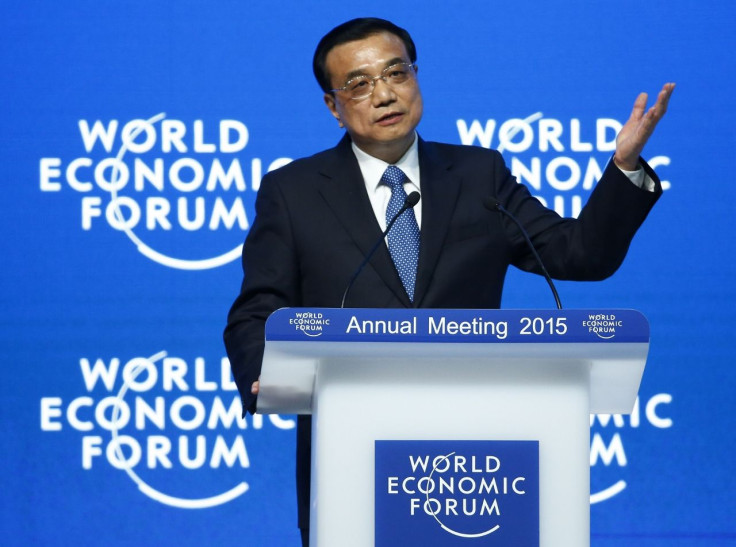China Assures Davos 2015 It Will Not Experience Hard Landing, Shrugs Low 2014 GDP

China may face large downward pressures in 2015 but it will not experience a hard landing, Premier Li Keqiang told global leaders attending the World Economic Forum in Davos. China had just announced its most growth rate in 24 years, but China’s top leader isn’t disturbed at all because it is all part of a deliberate strategy, Mr Li said.
On Tuesday, data released by the Chinese government declared China’s gross domestic product only jumped 7.4 percent in 2014, its slowest rate since 1990, from double-digit marks its citizens and the world had grown accustomed to. But as state news agency Xinhua wrote in a commentary, they better get used to it. After all, Mr Li had been working to shift strategies to something that will ensure an “appropriate” pace of expansion in the long-term medium-to-fast growth.
Mr Li, attending the annual meeting for the first time as head of state, told other global leaders present at the World Economic Forum in Davos that he had he opposed another monetary stimulus to ensure China’s robust growth rates because he wants the country’s growth to be based on structural reforms. He told the forum, other countries must consider the slowdown as an “opportunity” instead. “We will upgrade the structure of the economy to achieve better quality and performance,” he added.
Parag Khanna, senior fellow at the New America Foundation, quoted by CNBC, said Mr Li’s jab towards other global nations ring a truth, that China is indeed stable. "China is more confident at home than outsiders realize. Chinese outbound capital flows are surging as it expands its FDI [foreign direct investment] portfolio across sectors and regions," he said. China's outbound FDI hit $102.9 billion in 2014, the first time it breached the $100 billion mark. It was almost on par with the $119.6 billion recorded as inbound investment.
From being the world’s factory, China wants to works towards being an exporter of money and ideas. It wants to invest in the infrastructure of its neighbour nations. “The old China growth model is dying,” Bloomberg quoted Zhao Xijun, a finance professor with Renmin University in Beijing. He said China’s new economy will focus and rise based on innovation, services and domestic consumer spending. Li last attended the annual meeting as a vice premier in 2010.





















